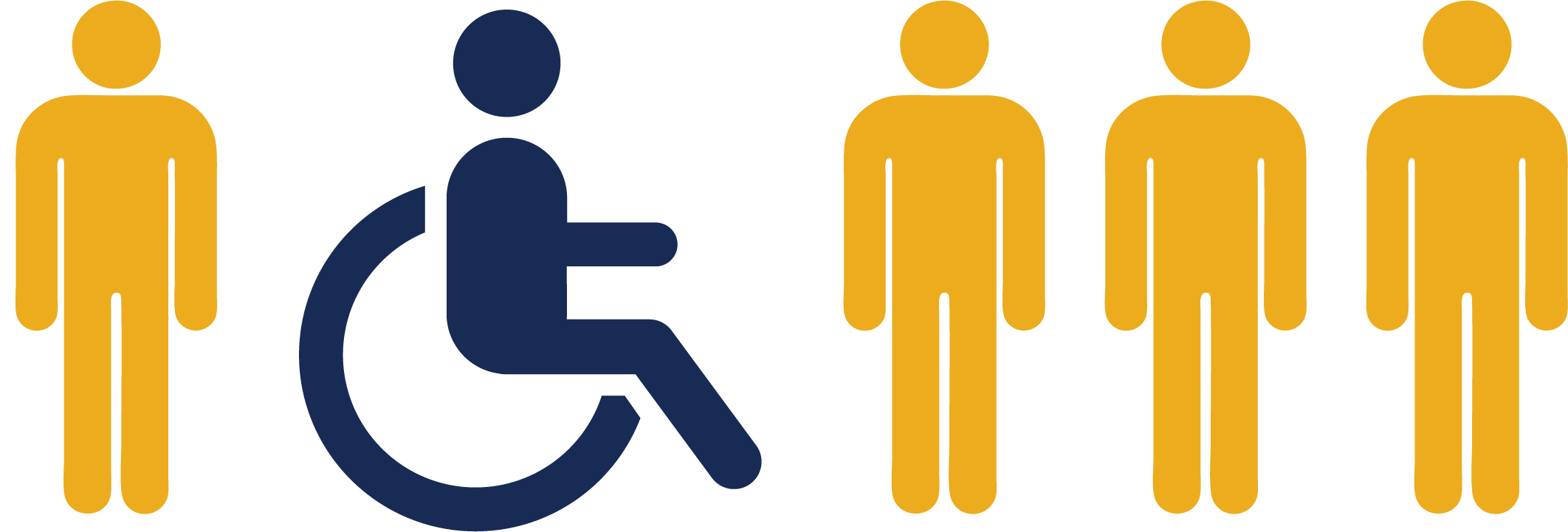Who we are
- The West Virginia University Center for Excellence in Disabilities (WVUCED) is a BRIDGE between the university and the community.
- Our role is to meet the needs of people with disabilities through RESEARCH, EDUCATION and SERVICE.
- The WVUCED is part of a national network of 67 university-based centers in all US states and territories. As a part of this network, we provide expertise in almost every topic that might impact the lives of people with disabilities.
- Our work SUPPORTS families in all of our communities.
What we do
-
 Direct Services - Evaluation and treatment through clinical and community services
Direct Services - Evaluation and treatment through clinical and community services -
 Interdisciplinary Training - Student and professional training opportunities that emphasize family-centered, culturally competent care for individuals with disabilities.
Interdisciplinary Training - Student and professional training opportunities that emphasize family-centered, culturally competent care for individuals with disabilities. -
 Research - Interdisciplinary research where scientists, practitioners, and people with disabilities work together to tackle disability-related issues relevant to West Virginia.
Research - Interdisciplinary research where scientists, practitioners, and people with disabilities work together to tackle disability-related issues relevant to West Virginia. -
 Dissemination - Education and outreach to individuals with disabilities, their families and providers about disability related information and resources.
Dissemination - Education and outreach to individuals with disabilities, their families and providers about disability related information and resources. -
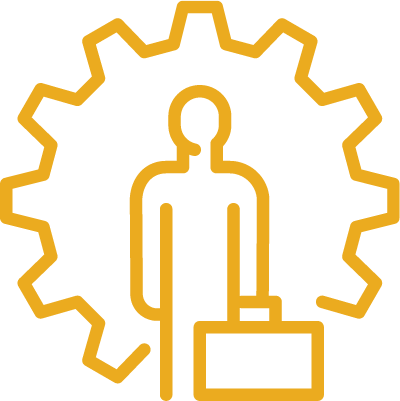 Technical Assistance - direct problemsolving services provided to assist programs, agencies or other entities in improving their resources, outcomes, services and capacity.
Technical Assistance - direct problemsolving services provided to assist programs, agencies or other entities in improving their resources, outcomes, services and capacity.
Program Highlights
We have been busy! Below are just some examples of activities that have been provided.
WVUCED Programs Promote Independence, Inclusion and Innovation
MODIFY
Mentoring with Oversight for Developing Independence with Foster Youth provides on-going services to youth who are transitioning out of the foster care system.
At the age of 14, I went to 12 different foster homes, facilities, shelters, and even a detention because they did not have anywhere to put me for a couple days. But I still managed to graduate a year early and go straight into college for social work. At the age of 17, I started my first year of college. And when I turned 18 I entered the MODIFY program which helped me pay for college and supported me while I lived on my own. In August of 2019 I graduated with my bachelor's degree in social work. I knew if this hadn't happened for me I would have never went to college. I would never have been able to afford it. I also would of had a hard time supporting myself financially. I am very grateful that have had this opportunity and I didn't take it for granted. - Ciarra Bowmann, Sandyville, WV.
TBI Traumatic Brain Injury Services
The TBI Services Program launched the first TBI-specific patient navigation system in the state, creating a streamline service approach that integrates healthcare navigation and resource facilitation for people living with a traumatic brain injury.
SFC Specialized Family Care
SFC recruits and trains host families to provide training, nurturing and a family living aka foster care home for individuals with developmental and other disabilities who need full-time care. SFC had 173 home providers serving 183 individuals with home placements. There were 154 adults in full time placement and 29 children in full time placement, with 25 adults receiving out of home respite and 3 children receiving out of home respite care.
BLIS Behavior and Learning Intervention Services
Behavior and Learning Intervention Services evolved from Autism Services in October of 2018. This change helped include individuals with multiple disabilities outside of an autism diagnosis. Along with the previously provided services (social skills groups, parent training, and webinars), short -term 1:1 Applied Behavior Analysis began to be provided. The goal of providing this service is to decrease clients wait time to receive services due to other centers waitlists being extremely long. We hope to bridge the gap while clients wait for more intensive services.
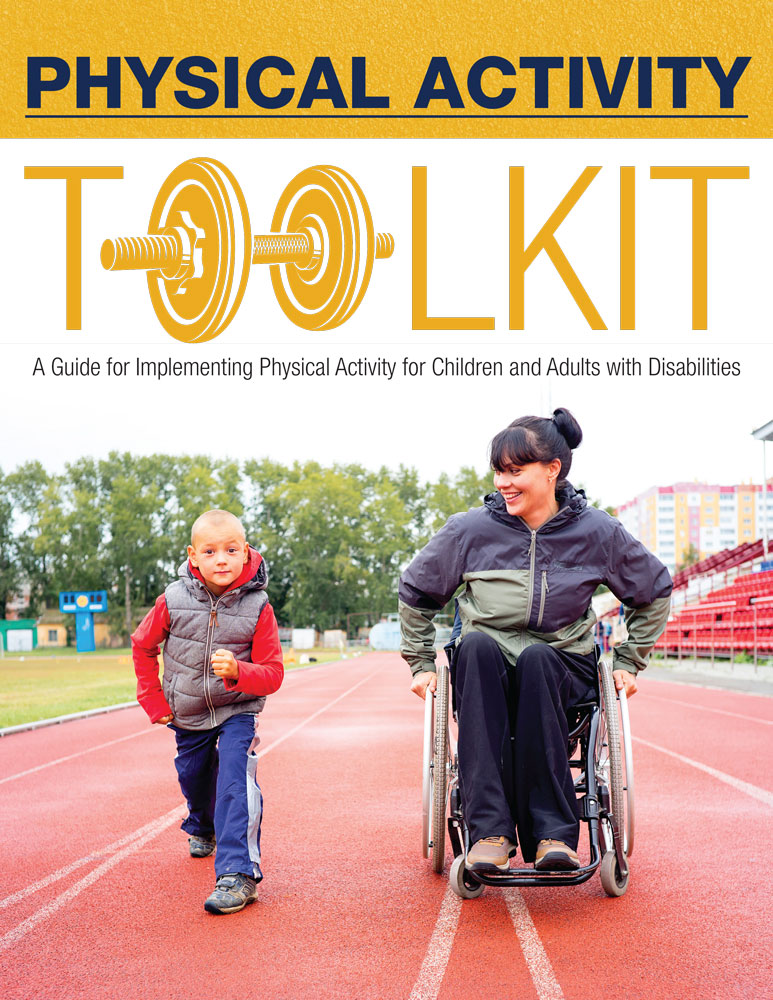
Physical Activity Toolkit: A Guide for Implementing Physical Activity for Children and Adults with Disabilities
The CED has partnered with the WVU School of Public Health to adapt their Physical Activity Toolkit to better serve individuals with disabilities. The purpose of this booklet is to provide activities that can be implemented in most settings (school, community, home) by any adult (parent, teacher, coach, neighbor) to increase children and adults with disabilities physical activity. Toolkits with materials for up to 10 participants are being distributed to facilitators in early 2020.
Project SEARCH
The CED was instrumental in bringing the Project SEARCH national project to West Virginia. Project SEARCH is an internship experience for students with special needs. Project SEARCH will be coordinated and hosted by WVU Medicine and supported by the West Virginia Department of Education. Together, in partnership with other community organizations, they will create a one-year immersion experience that combines classroom instruction, career exploration, and hands-on training through worksite rotations.
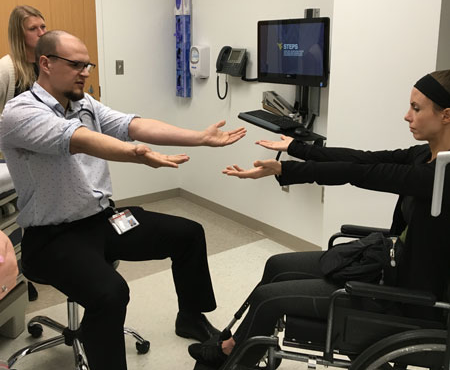
Not Your Standard Patient Simulation
The CED is piloting an inter-professional education simulation experience for third year medical students at West Virginia University. The goal of the project is to provide etiquette training to improve the bedside manner and interactions of future medical professionals to work with individuals with disabilities. Fifty-one students completed the simulation training through the WVU STEPS Center.
HOW WE'RE DOING
- 7 PROGRAMS
- 4 CLINICS
- 80 EMPLOYEES
located across the state
This map illustrates all WVU CED activities within the state by county during this period of time. These activities include direct services to individual clients and families, technical assistance provided by CED faculty/staff to outside programs and/or agencies, and community-based trainings.
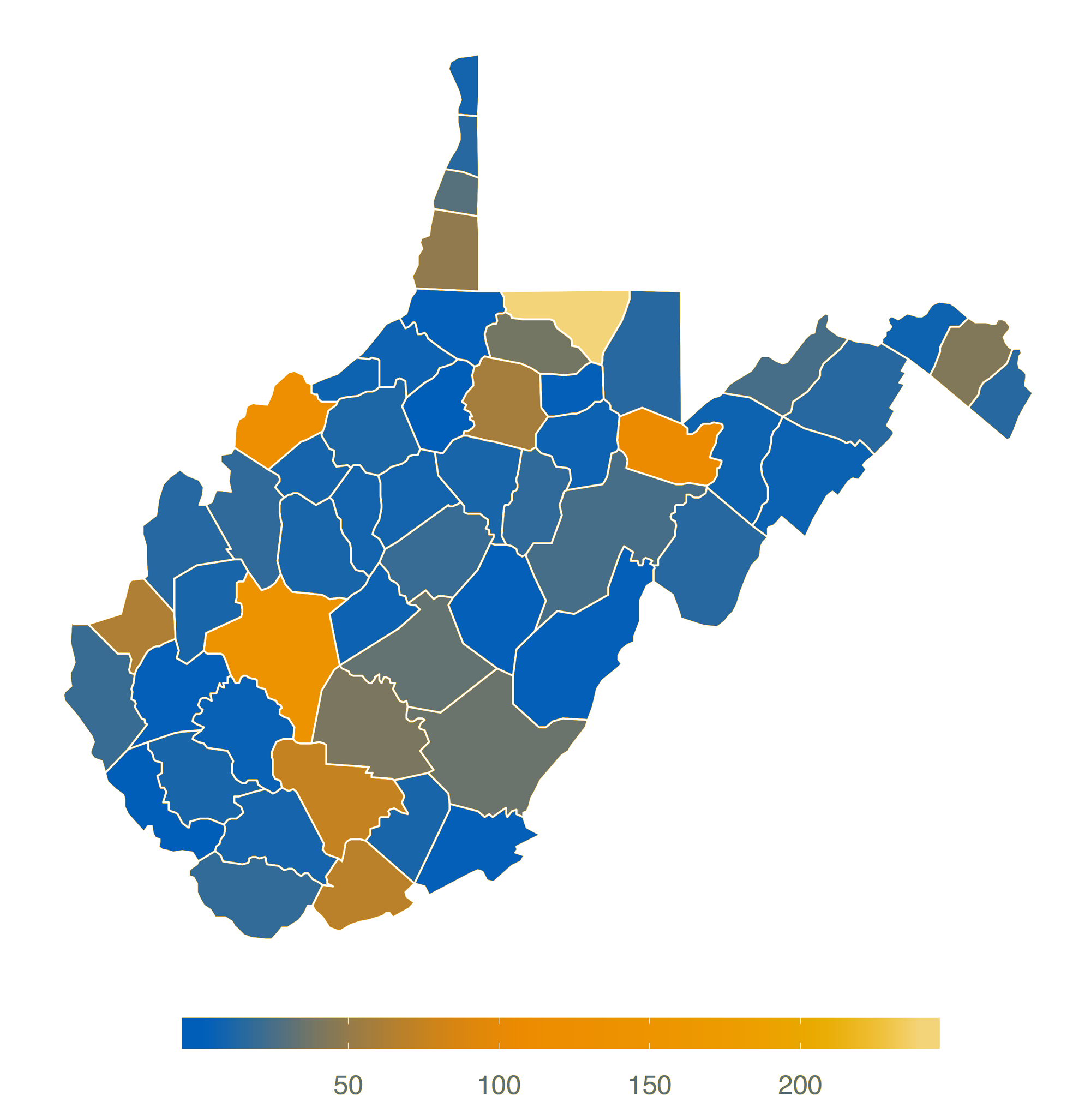
The WVUCED was active throughout the entire state. More services were provided in Monongalia, Wood, and Kanawha counties. More than 580 additional activities were offered throughout the state (more than 25 counties) and in neighboring state regions.
For more information, visit www.cedwvu.org or contact Lesley Cottrell, CED Director at lcottrell@hsc.wvu.edu.

